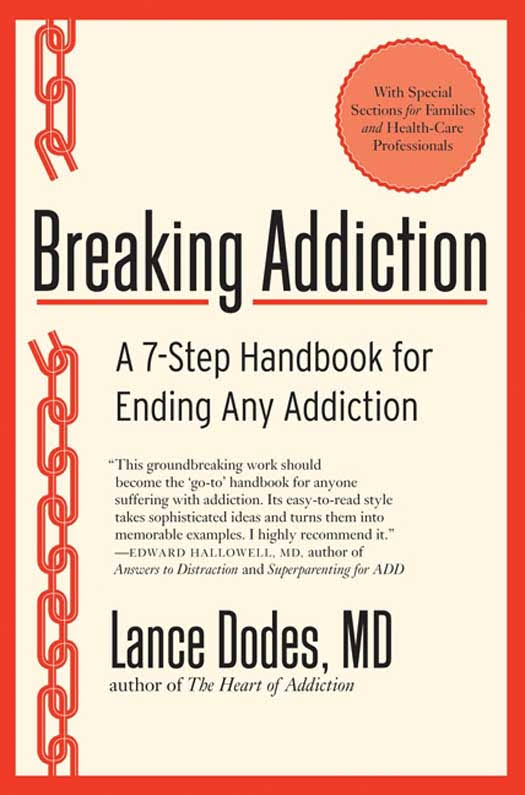
I just finished reading Breaking Addiction by Lance M. Dodes, an illuminating read on how addiction works, what is at the core of addictions, and why curing addiction is so hard. Here are five lessons I have learned.
1. Every addiction serves a purpose
"Everyone knows that addictive behavior is not good for you. People who suffer with addictions may know this best of all, because they’ve lived it. But addiction persists. Strange as it may seem, it must serve some purpose. In fact, its purpose must be so great that it is even more essential than avoiding the bad consequences of the addiction. It has to be more important than losing marriages, families, friends, jobs, and health. It has to be more important than losing your license to drive or to practice in a field that you care deeply about, more important than the pain of hurting people you love. What could possibly be worth all of that?In terms of the outside world, the world of careers, family, and success, there is, indeed, nothing worth losing it all. The purpose of addiction must lie in the inside world, where what is at stake are feelings central to emotional survival itself. If this is the case, then nobody would be surprised to find that it overrules even the most important external causes."
2. Addictions are defenses we use against uncomfortable experiences in life.
"Getting to know the defensive styles you use when faced with something uncomfortable can be extremely helpful in catching the key moment in your addiction. If you cast your mind back through your life you can probably notice the main ones. Do you try to push thoughts out of mind, like Marjorie? Do you try to out-tough problems rather than look into them, like Brian? Do you try to rationalize your problems away, like Steven? Do you turn emotions into intellectual problems to solve, like Kevin, or become unclear in your thinking when you are upset, like Karen? There are innumerable other ways to deal with uncomfortable issues. As you read about different people in the rest of this book, try to notice what defensive styles they use. It’s good practice for noticing your own style. Besides helping to pick up your addictive process earlier, knowing how you work emotionally is good for living in general."
3. Addictions are substitute actions that we take when we feel helpless in the face of a major challenge
"The point is that when there is no direct action a person feels he or she can take to deal with overwhelming helplessness, he finds a substitute (or a displaced) action. This is what makes addiction look the way it does. Addictions are all substitute (or displaced) actions. They take the place of a more direct response to feelings of helplessness in a particular situation.
In fact, we use these substitute or displaced actions as the labels for addictions themselves. If you compulsively substitute drinking for a direct action, then we say you have alcoholism. If you substitute sex, then we call this a sexual addiction. If you substitute compulsive eating, then we call it a type of eating disorder, and so on."
4. Find when you feel helpless
"If you can learn to recognize that sensation of being trapped, that feeling of hopelessness and helplessness, then you have the chance to stop and scrutinize what is going on in your life and in your mind before you get close to acting on your addiction. Even if you are not aware that you are under stress, even if you are completely unaware of the main emotional issues that cause problems for you in your life, as long as you can pick up on your feeling of helplessness you have a chance to catch your addiction early.
At that point you can think about your situation, and about whether it is the kind of position that in the past has led you toward your addiction. If you can do this, you will be turning the tables on your addiction. You will be making use of the central emotion of addictive behavior—the feeling of being trapped and helpless—as an ally. You will be turning it into a siren that warns you that the key moment on the path to addiction has arrived. And as we know, if you can catch the key moment in your addiction, you will know that your addictive act is around the corner."
5. Addictions are the royal road to understanding yourself
"Because addictions are efforts to deal with the most important emotional issues of your life, it is impossible to understand them without understanding yourself as a person. Likewise, it is extremely useful to explore the emotional factors that precipitate addictive behavior; understanding these factors provides a shortcut, a “royal road” to understanding yourself."
